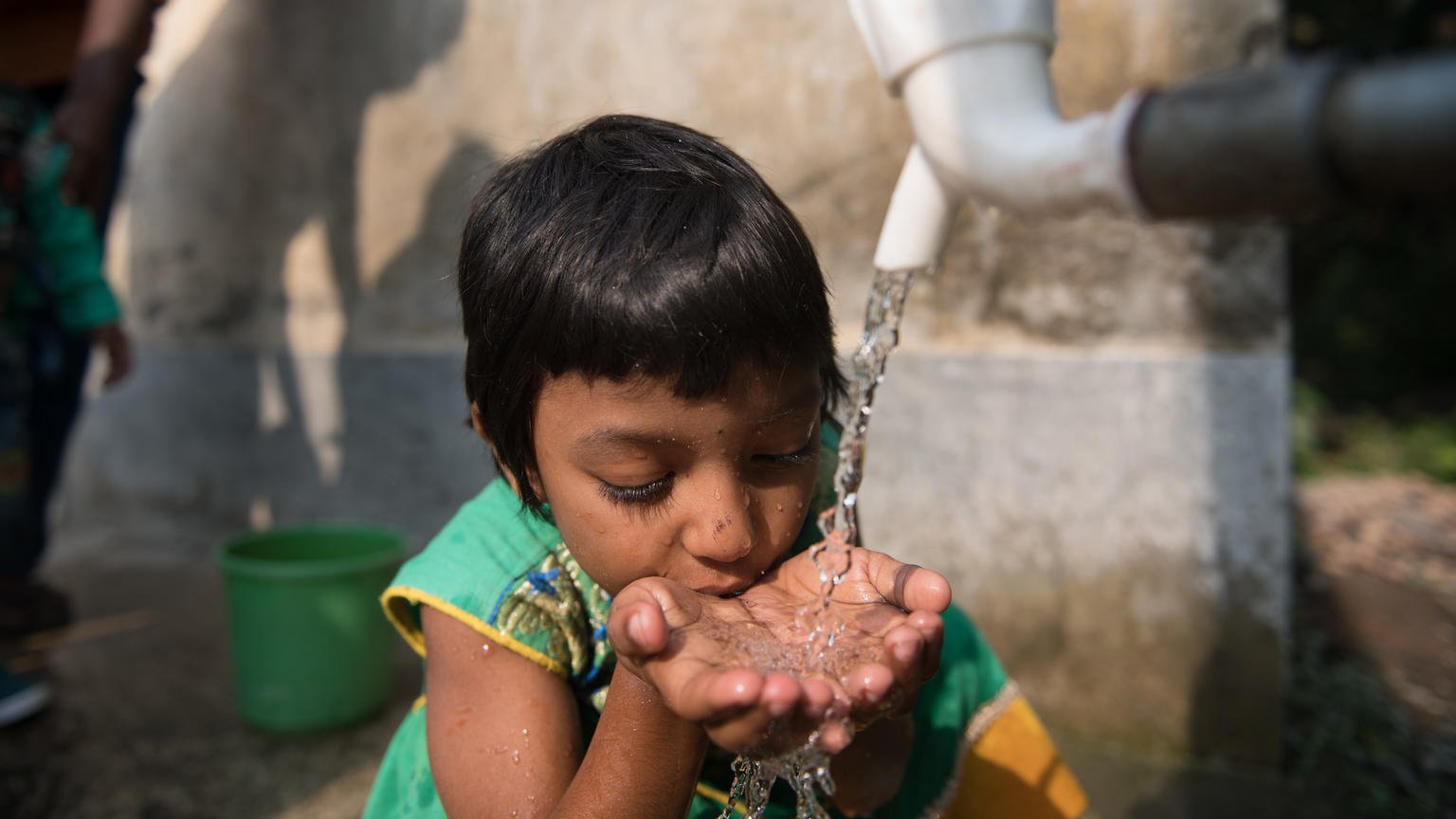‘90% diarrhoea deaths in India due to lack of safe drinking water and basic sanitation facilities’
The National Faecal Sludge and Septage Management (NFSSM) Alliance pointed out that 90 per cent of all deaths from diarrhoea in India, particularly in children, are caused due to lack of access to clean drinking water and basic sanitation services. Adopting appropriate WASH practices can reduce water borne diseases. Details here.


Experts say lack of access to clean drinking water is also a cause for child mortality and child stunting. Photo: Unicef India
In India, nine out of ten diarrhoea deaths, mainly in children, are caused due to lack of access to safe, clean drinking-water and basic sanitation facilities.
This was pointed out by a group of health experts in a virtual discussion titled ‘State of Knowledge: Public Health and Sanitation’ organised by the National Faecal Sludge and Septage Management (NFSSM) Alliance, a collaborative body that supports safe sanitation practices in India.
The panel discussion, held on August 27, highlighted that the lack of access to clean drinking water is also a cause for child mortality, morbidity, and a major contributor to child stunting.
The panelists included Madhu Krishna, Deputy Director, Bill & Melinda Gates Foundation, India; Anuradha Jain, Advisor, Health Systems Strengthening, USAID; Neeraj Jain, Country Director, PATH, India. The health experts underlined that the untreated human waste is linked to pathogens which further leads to bad health.
“It is evident that untreated human waste has an adverse impact on our health and safe sanitation is required to prevent a host of communicable diseases,” said Madhu Krishna, Deputy Director, Bill and Melinda Gates Foundation, India during the webinar.
“Looking at it from the gender lens, service delivery impacts women and girls more. Therefore, we need to take an inclusive approach. 90% of the frontline workers are women, yet sanitation facilities are not ensured for them. Providing universal safe sustainable sanitation is like a vaccination,” added Krishna.
Unsafe water and child health
A report by United Nations International Children’s Emergency Fund (UNICEF) shows that every fifth child in the world is affected by water scarcity and due to lack of availability of clean water, 700 children die from diarrhoea every day across the world. The report titled ‘Water security for all’ was published this year in March.
Also Read: 90.14 million children in India living amidst severe water crisis: UNICEF
A recent Gaon Connection’s ground report showed how a toddler and her great-grandmother died following severe diarrhoea in Dadra village of Mirzapur, Uttar Pradesh. Villagers claim they have been forced to drink polluted water for decades.
How to prevent diarrhoea?
The experts in the NFSSM webinar also underlined that there is evidence that mentions reduction in water borne diseases by adopting appropriate WASH (Water, Sanitation and Hygiene) practices. “However, different variables exist that impact the rate of diarrhea and water borne diseases and direct correlation isn’t always possible,” reads the statement dated September 1.
According to the World Health Organization (WHO), diarrhoea can last several days, and can leave the body without the water and salts that are necessary for survival. Infection is spread through contaminated food or drinking-water, or from person-to-person as a result of poor hygiene. Interventions to prevent diarrhoea, including safe drinking-water, use of improved sanitation and hand washing with soap can reduce disease risk.

Interestingly, a UNICEF-WHO report published in July this year on accessible sanitation and hygiene stated that during the course of the ongoing COVID19 pandemic, 30 per cent of the world population could not afford to wash its hands with soap and water.
Meanwhile, the panel discussion pointed out that poor sanitation also incurs high public health costs apart from causing high mortality rates due to spread of diseases. The discussions highlighted that WASH in healthcare facilities is an essential factor to the successful implementation of Swachh Bharat Mission 2.0 in India as well as the newly launched Pradhan Mantri Atmanirbhar Swasth Bharat Yojana 2021.
The session also pointed out certain positive aspects in relation to WASH and health during the COVID19 pandemic. It highlighted how community members have started to understand the importance of hygiene and water quality and are willing to seek help and care.

